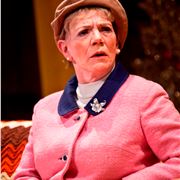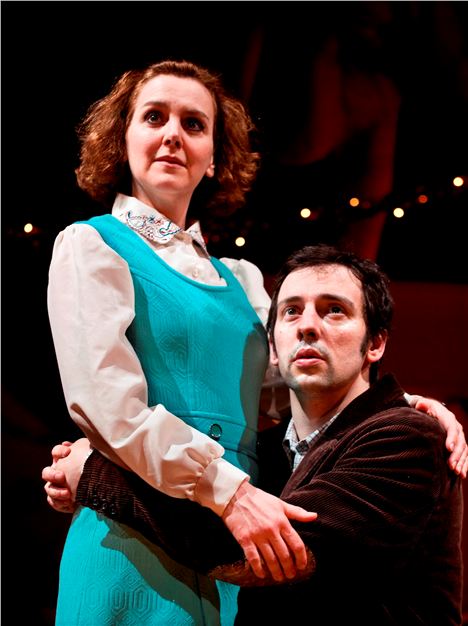AFTER his script for a comedy about a couple caring for a physically disabled 10-year-old girl had been turned down by “an impressive list of theatre managers”, an unknown playwright called Peter Nichols sent it, on spec, to Glasgow’s Citizens Theatre.
They staged it in 1967 and A Day In The Death Of Joe Egg entered the history of modern theatre as one of its bravest, most striking works.
Director Unwin’s own experience of raising a boy with profound learning difficulties must surely help to bring an edge to this production
Now, it’s widely regarded as one of the great plays of the20th century, remarkable not only for its subject matter but also for its challenging, irreverent tone.
It was recently revived at the Citizens’, albeit to indifferent reviews, and Nichols himself, who has never really enjoyed the critical acclaim his success might seem to merit, looks to be on something of a roll, with successful revivals of Privates On Parade and Passion Play in the West End.
So this joint Liverpool Playhouse and Rose Theatre Kingston production, directed by the Rose Theatre’s Stephen Unwin, arrives at an auspicious moment.
But 45 years on, can a modern production possibly replicate the impact of that original? After all, society has moved a long way on from the attitudes to “spastics” seen in the play, hasn’t it?
Remarkably, though, this is a production that proves that, with its balance of shock and laughter, hilarity and heartbreak, the play still packs a real punch.
It’s deeply unsettling to see the daily struggles of this decent young couple, Bri (Ralf Little) and Sheila (Rebecca Johnson), to look after their much-loved but severely disabled daughter Joe (Jessica Bastick-Vines) and terrifyingly suspenseful when you fear that Bri, caving in under the pressure, has murderous intents towards her.
At the same time, the play is genuinely funny and not simply because of Bri’s desperate, dark joking. The unusually-structured play, starting out as a two-hander, even ventures into Abigail’s Party territory in the second half when Sheila brings wealthy “Socialist” Freddie (Owen Oakeshott) and his hapless wife Pamela (Sally Tatum) home, and they’re all joined by Bri’s mum Grace (Marjorie Yates).
With all the characters (very unexpectedly in one case!) breaking the fourth wall, the audience are never allowed to simply sit back and observe in this production. Shock supplants laughter, and vice-versa.
There is no little irony, of course, in the casting of Ralf Little (an actor struggling to get out from under the lasting impression of him as baby boy Antony in the Royle Family or Two Pints of Lager twenty-something Jonny) as Bri, a man who seems unable to grow up.
His constant stream of mordant humour is at least as much of a little boy’s “look at me!” as it is a coping mechanism for the immensely difficult grown-up world in which he finds himself. But Little’s is a terrific performance, at times more akin to stand-up with its multiple personas. I might have imagined it, incidentally, but was there the odd hint of MrsThatcher in there, somewhere?

Sheila, an equally impressive if necessarily less outgoing performance from Johnson, has her own coping mechanism, loving perhaps not always entirely wisely. Her dawning realisation that their marriage is almost certainly doomed is as moving as anything else in this profoundly moving play.
Although it’s probably not for me to say, director Unwin’s own experience of raising a boy with profound learning difficulties must surely help to bring an edge to this production. Certainly, his touching programme note on the joys and challenges of living with his son is an enlightening read in its own right.
But, that aside, this is a superior and enthralling version of a play that, despite the 1960s trappings, still has a great deal to say about the struggles of living honestly and with an open, loving heart in our different world today.
8/10
*A Day In The Death Of Joe Egg is at the Liverpool Playhouse until Saturday 27 April, 2013.














